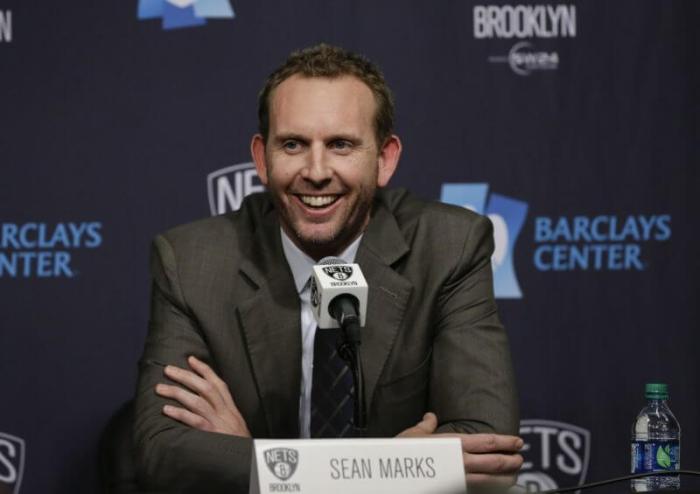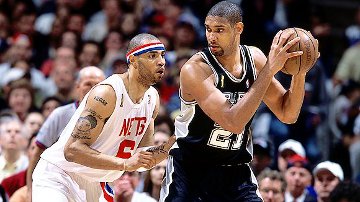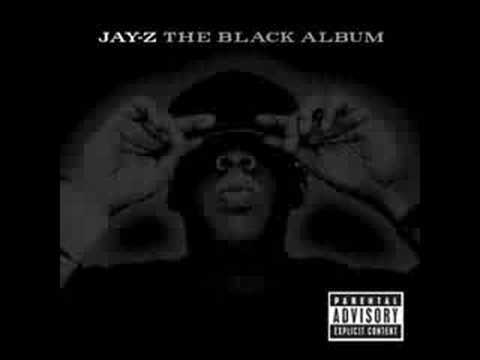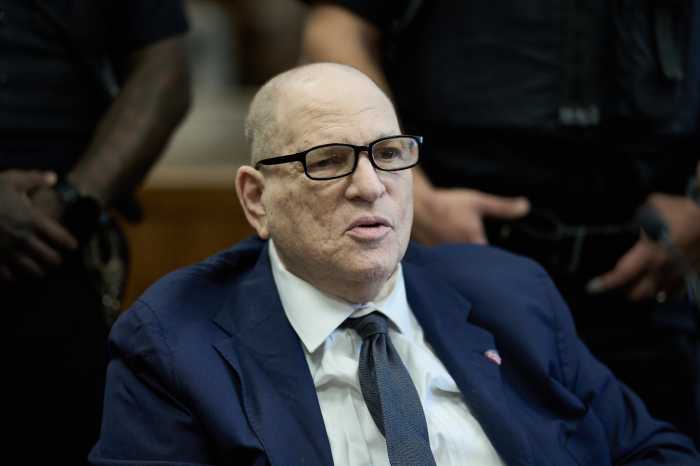
There is a certain ideal that the NBA should aspire to embrace. If only circumstances existed which the game could be appreciated for what it is — athletic competition at the highest level, without all the meddlesome stigmata that preclude the sport from reaching its full potential.
It was Oscar Robertson who said, “I think that basketball players should get the job done no matter how it looks on the screen.”
Unfortunately, today’s NBA falls short of that ideal. Whereas any NBA professional should be celebrated for being better at basketball than 99 percent of players worldwide, those who don’t stack up to the best of the best are identified as losers, the butts of fans’ jokes on a daily basis. It doesn’t seem like that is what James Naismith envisioned for the game all those years ago.
Certainly the commodification of basketball is a significant factor in this regard. No longer is it actually possible to play a game without financial consequences, and those players and teams who generate the greatest revenue are more notably heralded in the eyes of fans.
Moreover, the media plays a prominent role in this selective glorification, as the teams that separate themselves at the top of the league inherently garner more media attention than those that cling to the bottom. But the media are just doing what is necessary to satisfy their readership, viewership, etc.
Therefore, at its core, this concern is driven by what the fans want to see, and the fans are drawn to the teams and players who play the best.
That’s why the league ends up with incredible events like LeBron James’ Decision and the coup of free agents in Miami. The fans want to see what they haven’t seen before — some awesome occurrence that entertains them.
As a result, teams are faced with the struggles of standing out from their counterparts to hoard their share of notoriety. The ones that succeed enjoy a wealth of fame. The ones that don’t are subject to an indefinite period of obscurity.
That’s where the New Jersey Nets come in. Mired in a 9-25 campaign on the heels of their 12-70 disaster last year, the Nets are the Toby Flendersons of the NBA: they might have something good to offer, but no one really cares enough to find out what it is. Still, they face the taxing process of undoing all the wrongs done during Bruce Ratner’s ownership tenure.
The discourse is particularly timely in the shadow of LeBron’s recent comments that the league could benefit from contraction (which, as it happens, is compatible with the fans’ thirst for bigger and better things) and that the Nets and Minnesota Timberwolves are primary candidates to go first. As for who goes first out of that pair, maybe Saturday night’s drubbing settles that dilemma.
From the business perspective, the Nets have made all the right moves. Ratner’s out and Mikhail Prokhorov’s in; he’s about as intriguing as an NBA owner can be without getting arrested — only he has been arrested.
They persisted in the plans to get a new arena off the ground in Brooklyn, springing them from the soulless pit in the Meadowlands. And when they found out that was two seasons away, they found a provisional solution in Newark.
And the marketing has been effective, too. Complementing the “It’s All New” theme were brilliantly devised reversible jerseys for the fans and new uniforms, although there were blunders along the way (e.g., Brett Yormark’s rebuke of a fan who showed his displeasure with the team by donning a paper bag on his head).
Knowing anything about basketball will enable you to understand that succeeding in business decisions is not enough to make your team a standout in a professional league. Another key aspect is, you know, having the talent to compete.
The Nets aren’t there yet. After missing out on the cream of the crop in last summer’s free-agency class, the signings of Johan Petro, Anthony Morrow, Jordan Farmar, and Travis Outlaw were seen as stopgap solutions — they would be pieces of a larger future puzzle.
That puzzle came much closer to completion this August, when the Nets reportedly came within striking distance of a four-team deal of bringing that mysterious Carmelo Anthony character to New Jersey in exchange for No. 3 draft pick Derrick Favors.
The deal imploded, but the speculation didn’t and still hasn’t. And the debate rages on as to whether ’Melo is worth surrendering the beaming-with-potential Favors.
The two camps have their respective advocates, and those contingents are largely entrenched — it’s no easy to feat to sway a Favors supporter to an Anthony supporter and vice versa.
Barring a ludicrous scenario in which the Nets could reel in Anthony without sending either Favors or Brook Lopez the other direction, here’s an alternative to either of those camps, or, rather, the ’Melo camp with a caveat.
The typical argument focuses on whether the Nets will perform better in the long run with Anthony and whoever else comes to the team or with Favors and the products of the draft picks that change hands in the deal.
This alternative argument, instead, concerns whether trading for Anthony could remove the laughingstock tag that has branded the franchise all these years.
Opponents might argue that the improvement of the basketball team and the improvement of the franchise go hand in hand, but is that really the case? Consider the Nets over the past decade.
The Nets were once good, if you can recall, and not that long ago, either. In fact, they played in back-to-back NBA Finals in 2002 and 2003. But if you asked NBA fans who the Lakers and Spurs beat those years, likely a surprisingly small percentage would know it was the Nets.
Meanwhile, the Nets were settling with half- to three-quarters-full arenas when they were sparring with the likes of Shaquille O’Neal, Kobe Bryant, Tim Duncan, and David Robinson in June.
The Nets’ best attendance days? Those came after the team’s blockbuster trade from Vince Carter — and no one could argue that any of the Nets’ teams from 2005 to 2008 were better than the squads in 2002 or 2003.
That’s because the Eastern Conference Champion squads were plain and boring, winning games with stingy defense and fundamentals but without a star personality. Carter’s Nets were known for their astonishing athleticism on the wings and 30-point performances aplenty.
For further comparison, take the pulse of the league today. The New York Knicks are 18-14 and the Oklahoma City Thunder are 23-12. Most would say the Thunder are the better team, but who do you hear more about? Who has the reputation indicative of a better franchise? That has to be the Knicks.
Yes, Kevin Durant is on the Thunder, which, according to this argument would suggest a star can’t always propel a franchise to notoriety. Durant’s skills are undeniable, but he doesn’t have that star personality, that swagger, that many of the league’s best have.
And in Los Angeles, there is this fellow named Blake Griffin. You might have heard of him. By most measures, the Clippers still can’t compete with many of the NBA’s teams. But that doesn’t stop them from making a new name for themselves, courtesy of Mr. Griffin. At the beginning of the season, the Clippers couldn’t buy a sellout. Since December 8, they’ve had three.
Carmelo Anthony is the kind of player that can follow in Carter’s footsteps and get the Nets on the road to notoriety. Immediately, the Nets would have a marketable personality in the United States — not just one in China with Yi Jianlian.
He would give borderline fans a reason to turn on the TV and hope for something thrilling, just like Clippers viewers are doing because of Blake Griffin.
But it’s not like he’d just turn the Nets into the Brooklyn Globetrotters. The Nets would be markedly better with Anthony on the floor, even though they might not be in the long run if they only acquired him. And they wouldn’t be a championship team, either.
With that said, such a trade would get the Nets to the point where meaningful acquisitions would be possible. Last season’s free-agency bonanza showed that the Nets are just too flawed to be a desirable destination for any half-decent player. Anthony’s presence would undoubtedly change that.
Maybe Favors and whomever else the Nets draft would be enough to do that a few years down the road, but what if Favors busts? What if the Nets shoot blanks in the next few drafts? After all, Rod Thorn’s gone. That’s a few years of wasted time.
It is impossible to predict how either of these courses of action would play out right now. But even if trading for ’Melo turns out to be the worse basketball move, it will still be a great step in putting the uncharted Nets lands back on the NBA map.
While the NBA is not a league in which teams should have to claw and scrape for credibility, that even Stephen Graham should have his due appreciation, it is an unfortunate reality that teams are faced with, and the problem sometimes seems irreconcilable.
For the Nets, the solution is ’Melo.

















